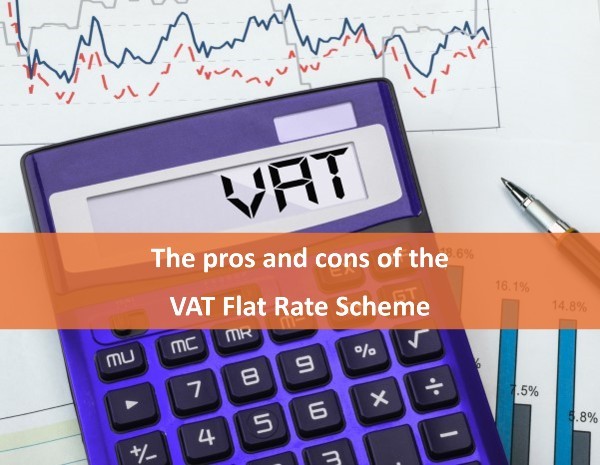
Value Added Tax (VAT) is a significant consideration for businesses. It impacts your cash flow, the amount of admin work needed, and even your overall profitability. One option available to businesses - with a VAT exclusive turnover of £150,000 or less - is the VAT Flat Rate Scheme (FRS), which offers a simplified approach to VAT accounting. However, deciding whether to adopt this scheme requires careful consideration of its benefits and drawbacks.
The VAT Flat Rate Scheme operates by applying a fixed percentage to your turnover to determine the VAT payable to HM Revenue and Customs (HMRC). This fixed rate varies depending on the industry sector that your business operates in. While this simplicity can be appealing, it's crucial for businesses to evaluate whether this scheme aligns with their specific circumstances.
The advantages
One of the primary advantages of the VAT Flat Rate Scheme is how simple it is to operate. Unlike traditional VAT accounting, where businesses need to track VAT on sales and purchases separately, FRS simplifies this process by applying a flat rate to the total turnover. This can save time and reduce the administrative burden, and if you run a smaller business this can be a big help!
Businesses under the VAT Flat Rate Scheme can also benefit from potentially paying less VAT to HMRC compared to the traditional accounting methods of accounting for VAT. The scheme allows for your business to keep the difference between the VAT charged to customers and the VAT paid to HMRC, which can provide an additional margin for your business.
The disadvantages
However, while the VAT Flat Rate Scheme offers simplicity and potential cost savings, it may not be suitable for all businesses. One of the notable drawbacks is the inability to reclaim VAT on purchases, except for certain capital assets over £2,000. This means that if your business buys in a lot of supplies that you pay VAT on, you may not benefit from the scheme as much as others.
Additionally, the fixed rates provided by HMRC may not always accurately reflect your business's specific VAT position. While these rates are designed to approximate the average VAT payable for different industries, businesses with atypical cost structures or profit margins may find themselves disadvantaged by the scheme.
Furthermore, you need to consider the future growth of your business and how this might impact your VAT liabilities under the Flat Rate Scheme. As turnover increases, the fixed percentage applied to turnover may result in higher VAT payments compared to the traditional methods of accounting for VAT. This could potentially erode the scheme's cost-saving benefits.
Before deciding whether to adopt the VAT Flat Rate Scheme, it is important that you carefully evaluate your current VAT position, including the proportion of VAT-able sales and purchases, as well as any potential future changes in turnover.
We can help you decide whether joining or leaving the Flat Rate Scheme is a good choice for yoururchases, as well as any potential future changes in turnover.
We can help you decide whether joining or leaving the Flat Rate Scheme is a good choice for your business. Please feel free to get in touch with us. We will be happy to help you!


.jpg)

.jpg)



